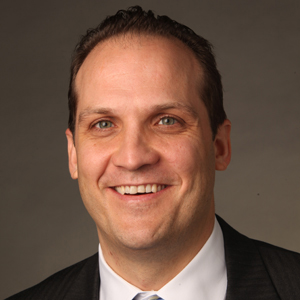Tax & Estate Planning
A recent court case underscores the importance of having a team of specialists.
When Aretha Franklin passed away in 2018, the legendary “Queen of Soul” left behind four sons and an $18 million estate. What she didn’t leave behind — as far as anyone could tell — was a last will and testament. That meant Michigan, per state law, would oversee the distribution of her assets and divide them equally among her heirs.
Then, in a twist that felt like a sour note in an already off-key ballad, Franklin’s family discovered not one, but two handwritten notes — a notarized one stashed in a dresser and a later one bearing Franklin’s signature that had been wedged between the cushions of a sofa. The two documents had conflicting provisions and split her estate in different ways, leading to a nearly five-year battle over which document should be used.
Only recently did a court resolve the issue, and many details may yet require legal action to sort out. And while Franklin’s sons have said the dispute hasn’t hurt their relationship, there have been signs of familial strain: A cousin who was overseeing the estate resigned, citing the position’s enormous pressures and the rift the court case was causing among family members.
Franklin’s case might be extreme, but it’s one of many such examples among celebrities — not to mention countless instances among the general public that don’t draw public scrutiny. At a minimum, the case underlines the importance of proper estate planning to avert legal challenges and family dissension. Frustratingly, in many such cases, these difficulties, including legal fees, wasted time and tension among family members, can be avoided.
“An intestate estate can be a prolonged and potentially expensive nightmare,” says Jeffay Chang, a trust and estate specialist at Capital Group Private Client Services. “The good news is that your tax, legal and investment advisors can work together with you to help avoid that situation.”
There’s more to a will than putting your final wishes on paper.
It’s clear that Franklin gave a lot of thought to how she wanted her assets divided. She took the time to handwrite at least two separate documents and took measures to formalize one. However, she still left her family with a mystery when she died: Did the early note, with its notarization and at least slightly better storage, record her truest intentions? Did the later document reflect an evolution of her desires, or was she just working out potential revisions? Were there other, more definitive documents hidden away?
The Franklin family’s situation illustrates how it’s not enough to simply put your final wishes in writing.
“Many people think just having a will is sufficient to administer an estate,” says Bob Lewis, a Private Wealth Advisor with Capital Group Private Client Services. “But having a will and implementing it are two separate things.”
The difficulties go beyond the elemental issue of ensuring your will communicates your wishes. Estate law is complicated and varies from area to area, so it’s easy to unknowingly stray outside legal guidelines. For example, Michigan is among the roughly one half of U.S. states that recognize handwritten wills; had Franklin lived one state over, in Indiana, it’s possible that neither document would have been admissible.
Beyond that, your will is a vital piece of your estate planning. It can provide for the creation of trusts and other complex legal measures to protect your heirs, maintain your family’s privacy and help shield your estate from taxation. These are useful tools, but they generally require specialized knowledge to properly draft and implement.
For Lewis, the solution to these issues is straightforward. He suggests working with a team of specialists and your legal advisor to help ensure that your will reflects your intent while not tripping over any legal restrictions.
“As individuals, we don’t always know what we don’t know,” Lewis explains. “Having a team that can handle these issues, fill out the right paperwork and get the details right can help spare your family later.”
The worst time to look for trusted advisors is when you need them the most.
When a loved one dies, even mundane estate issues can be paralyzing. Simple tasks such as cleaning up their living spaces or packing away old clothes is draining enough under a pall of grief — let alone looking for competent and trustworthy legal representation to handle the technical aspects of an estate.
“Even pretty straightforward estates will likely require help,” Lewis says. “I’ve had clients with extensive collections — art, teapots, even snuffboxes. Those need to be valued. What’s a reasonable price for that? Your heirs probably don’t know, and the passing of a loved one is not the time they should be finding that out.”
Having a trusted and pre-established team of specialists can be invaluable in such cases. Not only will they be familiar with your attorney, your estate assets and your will, but they can be available after your loved one’s death to support family members throughout the process. Trust and estate specialists at Capital Group Private Client Services can serve in this role.
“I want a firm, a legacy company, on hand to take care of my family,” Lewis says. “It’s important that I’m not relying on a single person who can come or go. I want the continuity of a team, and I want that relationship established before I need them.”
Your will, whatever form it takes, is just one part of estate planning.
Though working on your will can be uncomfortable, it is vital to help ensure your legacy. Proper drafting can be key to providing clear instructions to dispose of your assets and protect your beneficiaries from potential liability and tax exposure. The earlier you begin working on your estate plan, the better you can safeguard your assets and your beneficiaries, Chang says.
If you need help finding a trust and estate attorney, or haven’t worked with a team of trust and estate specialists yet — or if it’s just been a little while since you last examined your plan — talk to your Private Wealth Advisor to set up an appointment.
Related Insights
Related Insights
-
-
Economic Indicators
-
Portfolio Construction

 Jeffay Chang
Jeffay Chang
 Bob Lewis
Bob Lewis